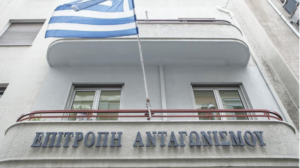The preparation of banks – under pressure from the Single Supervisory Mechanism (SSM) – to offload properties from their portfolios, the servicers’ planning to dispose of tens of thousands of properties they own, the government’s measures to put homes (to be bought as first homes) on the market and the tax measures being considered for Airbnb-type platforms may act as a brake on the frenetic price rise. And at the same time create a cooldown in the country’s mini housing crisis before it occurs, giving a breathing space to average-value residential properties in prime residential areas.
The Bank of Greece, which notes a cumulative increase in property prices of 66.4% over the last seven years, estimates that “interventions to boost supply and limit investment demand for residential property (short-term leases, Golden Visa) in prime residential areas are expected to moderate the rates of price and rental growth and possibly lead to local price corrections as well.”
Tens of thousands of properties that are currently included in the portfolios of the mainstream banks appear ready to enter the game. The reason is that the SSM is pushing Greek financial institutions to further unload part of this portfolio in order to achieve (further) reduction of their high inventory. To this, if the approximately 100,000 properties held by servicers are added, a “mini flood” of residential properties can be achieved, which will increase the number of homes available for sale and will be able to, if not bring down, at least keep prices at the same level.
The banks’ properties
The government, in the face of the mini housing crisis caused by the (inflation-fuelled) rise in housing costs, is taking action. However, the powerful restraint on what the BoE describes as “the severe housing cost problem that has arisen in recent years as a result of extensive investment exploitation” comes from elsewhere.
The reason is the SSM, which in this year’s consultation is pushing for a reduction in the property portfolio of the four systemic banks. Besides, this is the direction in which the banks are moving, and they have pledged to accelerate their reduction efforts, as maintaining them as a percentage of assets leads to capital consumption.
These are about 10,000 properties, whose registered value on the books of the systemic banks exceeds €4 billion. These have come into the ownership of the banks as a result mainly of auctions and secondarily of final debt settlements, with most of them in the process of maturing in order to become ready for transfer. However, the process of settling the recovered properties has proved to be more time-consuming and costly than expected, resulting in significant delays in the posting of their sales listings (e.g. for those that will not be exploited through leases).
The thousands of property sales that will (inevitably) be driven by SSM pressure and the acceleration by banks of their strategy of unloading their portfolios to avoid costly management costs is expected to be compounded by another factor stemming the upward price trajectory – further supply growth. In this case, it is more than 100,000 properties that do not face the objective difficulty of maturing and settling before they are transferred by the banks.
These are the servicers and asset managers to whom most of the properties held by the banks have been transferred and who have been keen to sell them to lighten their assets. Through REOCOs, servicers take properties from auctions, which are taken over by specialist property management companies to mature and settle them as quickly as possible so they can be disposed of.
Already last year, real estate market players described a cooldown expected in property prices, causing downward pressure from the planning by the largest servicers operating in the country to put more than 100,000 properties they own on the market. To this it is worth adding the assessment that the intention of the servicers is to sell them during this year, which justifies their disposal at competitive prices, given the good situation in which the Greek real estate market is in, which guarantees a high profit margin.
In this direction, it is estimated that the measures to facilitate auctions will also give a boost, as properties for sale are now treated with a more commercial view, as prospective buyers even have the opportunity to see them in person.
The government’s first homeowner programs
It is estimated that the government’s interventions will succeed in… lower the thermometer of property prices while boosting construction and investment activity. Focused on prime residential areas, these interventions are aimed at boosting supply and curbing investment demand for residential properties (short-term leases, Golden Visa), which, according to the BoE, “is expected to moderate the pace of price and rent increases and possibly lead to local price corrections.”
The second part of the “My House” program is already in the works, as Prime Minister Kyriakos Mitsotakis’ negotiation with the Commission to secure funds from the Recovery and Resilience Fund was successful. Thus, with a contribution from the state budget of €300 million and €1.7 billion from the Recovery Fund, the continuation of the programme will be financed with 20,000 cheap loans, this time for citizens aged between 29 and 50. We recall that 6,305 disbursed loans for the purchase of property were disbursed from the previous programme with a total budget of 1 billion euros, and by the end of the year 9,155 new couples will have acquired their own home.
The “Social Counterpart” programme, which aims to provide housing for a low price by exploiting the dormant real estate assets of the state, is also expected to run in the autumn. Through this action it is planned to build more than 2,500 houses which will be made available to citizens up to 39 years old (based on income and family criteria), with the applicable model of disposal being the market, rent, and even rent to own.
The latter model is of particular interest, given that it provides for lease-to-purchase contracts, which is being considered to be extended to other properties owned by General Government entities, in addition to those built under a social rent-to-own contract.
The measures on Airbnb
The government’s initiatives with incentives and tax breaks for owners of closed properties to open up and bring their apartments on long-term lease are expected to give a boost to the housing market by increasing the number of properties on offer. On the latter, the Prime Minister has revealed that a day cap is being considered on properties made available through short-term rental platforms such as Airbnb, a scenario that appears to be on ice as tax premium measures for those who put their properties on long-term leases seem to be preferred, while at the same time increasing taxes on those on short-term leases. After the summer, the government is expected to announce the interventions in the Airbnb-type rental scheme with the implementation of new measures to be decided and driven by the need to solve the country’s housing problem.
After evaluating the results of the current tourist season and taking into account factors such as the geographical dimension,the housing problem of each region and whether short-term rentals have negatively affected the finding of housing for long-term rentals, the final decisions will be made.
In terms of closed apartments, there are an estimated 1 million or more from landlords who choose not to use them (due to bad experiences from poorly paying tenants, the cost of renovations, and disagreements with co-owners), real estate market players say that programmes such as ‘My House’ can bring about a trend reversal of the structural change that the housing market has undergone over the last 15 years (culminating in the crisis years) of households turning to renting rather than buying. The simultaneous provision of more available properties on the market with the rationalisation of prices in prime housing areas and access to finance by potential buyers can prove to be salutary in reversing this change.
Positive momentum from luxury real estate
However, the sector of Greek real estate that seems capable of maintaining its very strong momentum and pulling others along is that of luxury real estate. As the BoG notes in its report on the real estate market in 2024, at least in the short term and as long as demand from abroad remains strong, “prices will continue their upward trend in the high-end segment of the market, dragging along prices in secondary markets.”
Besides, all analysts agree that real estate-related Foreign Direct Investment (FDI) is maintaining a strong growth rate, reaching €2 billion in 2022-2023, compared to an average of €400 million during the previous decade. Of course, these are boosted by the incentives provided to third country citizens through the implementation of the Golden Visa programme, but also by the general growth experienced by this sector.
Strong demand from abroad in a market that is characterized by stability (politically and economically) and has a bright future, particularly in areas such as the Athenian Riviera (as the mega project of Elliniko is driving up values on almost the entire coastal front), is seen to provide high-value properties in prime locations at a discount to the rest of the European market. Besides, not coincidentally, in this year’s April-May-June period the highest average price for homes for sale was in the southern suburbs of the capital, at 3,750 euros per square meter.
For the above reasons, therefore, it is estimated that the appetite for FDI in this sector will remain strong maintaining the upward trend in the luxury real estate sector. Besides, as the Bank of Greece points out that the developments of the last two years, namely geopolitical instability and high inflation, did not stop the upward trend in real estate prices and economic and investment activity in Greece and demand from both domestic and foreign investors remained at satisfactory levels, it is not considered strange that analysts believe that this strong demand will maintain the positive momentum in prices.
Ask me anything
Explore related questions





